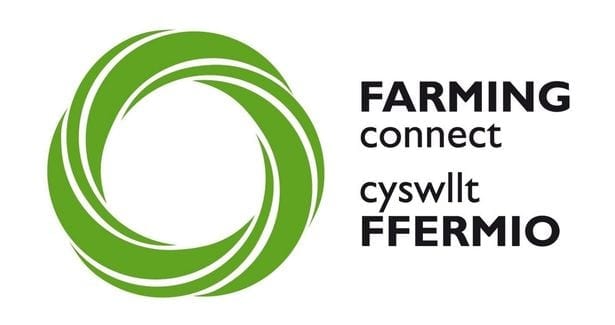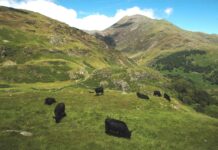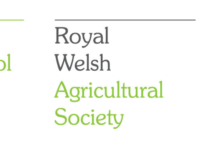Sheep farmers should avoid feeding heavily pregnant ewes more than 0.5kg of concentrates in a single feed, a vet has advised.
A ewe’s daily nutrition requirements in the third trimester is best allocated over two feeds, recommends vet Miranda Timmerman of ProStock Vets.
It is better for the ewe than having all her feed in “one big hit”, she told farmers participating in an interactive webinar led by ProStock and supported by the Welsh Government, Farming Connect, Lantra and NADIS to help farmers prevent lambing losses.
“Only feed up to 0.5kg at a time or the ewe will get very acidotic and this will severely affect her ability to process that feed.
“While most ewes will get enough concentrate in two feeds of 0.5kg, if they are thin then it is better to give a midday feed than to increase the size of the feeds.”
Nutrition is important at all stages in a ewe’s pregnancy but the last eight to six weeks is especially crucial.
If nutrition is poor, newborn lambs will have inadequate levels of brown fat, leaving them cold and weak.
This brown fat is the only energy source for the newborn lamb and will keep it alive and vigorous for a few hours after birth.
In normal conditions, this is enough time to allow the lamb to dry off and start to suckle the colostrum.
Ms Timmerman advised farmers to monitor the body condition score (BCS) of ewes regularly.
“Fat ewes don’t want to push and very often the lambs will die,” she said.
A thin ewe will be more interested in what she wants to eat, not in feeding her lamb.
Lowland breeds such as the Texel and Suffolk should be at BCS 3.5 at lambing and upland breeds at 2.5-3.
Feed pregnant ewes according to the number of lambs she is carrying – scanning will inform this.
Manage ewes with singles, twins and triplets as separate groups to allow differing amounts to be fed.
Any deficiency in energy intake and dry matter (DM) intake not supplied by forage must be provided by supplementary feeds.
As the nutritional value of silage and hay is changeable, getting it analysed will inform the level of supplementation needed.
“Dry ewes are not like dry cows, they need really good forage,” said Ms Timmerman.
“Their rumen is very small at this stage so if they are fed silage that is of average to poor quality they are not going to be getting sufficient nutrition, even if they are receiving concentrates.”
Remove uneaten silage and replace it with fresh forage to increase intakes.
Supply the correct levels of minerals also.
Ms Timmerman said one of the best devices a farmer can invest in ahead of lambing is a ketone meter, a device which can advise within ten seconds whether a ewe’s energy needs are being met.
She recommends doing this sheep-side test 2-3 weeks before lambing. “This is the time a ewe is most likely to not be getting enough energy.”
Funding is currently available through the Farming Connect Advisory Service for veterinary advice on a flock’s energy requirements pre-lambing.
Elevated energy demands placed on pregnant ewes in late gestation mean sheep can lose condition and suffer from twin lamb disease.
A high demand for glucose will make the ewe rapidly break down her own body fat reserves; this produces toxic chemicals called ketones, which rapidly build up in the blood.
Ms Timmerman suggests treating ewes with early symptoms with an energy and calcium drench.
“Twin lamb disease is preventable if you are quick enough to spot the clinical signs, drenching at this stage will lead to recovery after three days,” she said.
“It is so important to recognise the signs early because you can’t get a ewe back once she has too many toxins in her brain.”
Farming Connect, which is delivered by Menter a Busnes and Lantra, has received funding through the Welsh Government Rural Communities – Rural Development Programme 2014-2020, which is funded by the European Agricultural Fund for Rural Development and the Welsh Government.
Help keep news FREE for our readers
Supporting your local community newspaper/online news outlet is crucial now more than ever. If you believe in independent journalism, then consider making a valuable contribution by making a one-time or monthly donation. We operate in rural areas where providing unbiased news can be challenging. Read More About Supporting The West Wales Chronicle


























